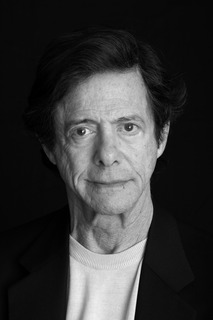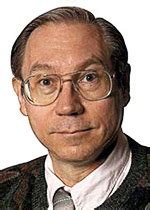A Quote by Ayn Rand
The difference between [socialism and fascism] is superficial and purely formal, but it is significant psychologically: it brings the authoritarian nature of a planned economy crudely into the open. The main characteristic of socialism (and of communism) is public ownership of the means of production, and, therefore, the abolition of private property. The right to property is the right of use and disposal. Under fascism, men retain the semblance or pretense of private property, but the government holds total power over its use and disposal.
Quote Topics
Abolition
Authoritarian
Between
Brings
Characteristic
Communism
Difference
Disposal
Economy
Fascism
Formal
Government
Holds
Main
Main Character
Means
Men
Nature
Open
Over
Over It
Ownership
Planned
Power
Pretense
Private
Private Property
Production
Property
Psychologically
Public
Purely
Retain
Right
Semblance
Significant
Socialism
Superficial
Therefore
Total
Use
Related Quotes
One ideological claim is that private property is theft, that the natural product of the existence of property is evil, and that private ownership therefore should not exist... What those who feel this way don't realize is that property is a notion that has to do with control - that property is a system for the disposal of power. The absence of property almost always means the concentration of power in the state.
Under fascism, citizens retain the responsibilities of owning property, without freedom to act and without any of the advantages of ownership. Under socialism, government officials acquire all the advantages of ownership, without any of the responsibilities, since they do not hold title to the property, but merely the right to use it -- at least until the next purge. In either case, the government officials hold the economic, political and legal power of life or death over the citizens.
Unlike the Marxists, the Nazis did not advocate public ownership of the means of production. They did demand that the government oversee and run the nation's economy. The issue of legal ownership is secondary; what counts is the issue of control. Private citizens, therefore, may continue to hold titles to property-so long as the state res...erves to itself the unqualified right to regulate the use of their property.
What I do know is, in little more than 30 years, we have gone from a nation where the “quiet enjoyment” of one’s private property was a sacred right, to a day when the so-called property “owner” faces a hovering hoard of taxmen and regulators threatening to lien, foreclose, and “go to auction” at the first sign of private defiance of their collective will ... a relationship between government and private property rights which my dictionary defines as “fascism.”
We hold that the ownership of private property is the right and privilege of every American citizen and is one of the foundation stones upon which this nation and its free enterprise system has been built and has prospered. We feel that private property rights and human rights are inseparable and indivisible. Only in those nations that guarantee the right of ownership of private property as basic and sacred under their law is there any recognition of human rights.
Civil rights, as we may remember, are reducible to three primary heads; the right of personal security; the right of personal liberty; and the right of private property. In a state of slavery, the two last are wholly abolished, the person of the slave being at the absolute disposal of his master; and property, what he is incapable, in that state, either of acquiring, or holding, in his own use. Hence, it will appear how perfectly irreconcilable a state of slavery is to the principles of a democracy, which form the basis and foundation of our government.
It has been the fashion to speak of the conflict between human rights and property rights, and from this it has come to be widely believed that the use of private property is tainted with evil and should not be espoused by rational and civilized men... the only dependable foundation of personal liberty is the personal economic security of private property. The Good Society.



































